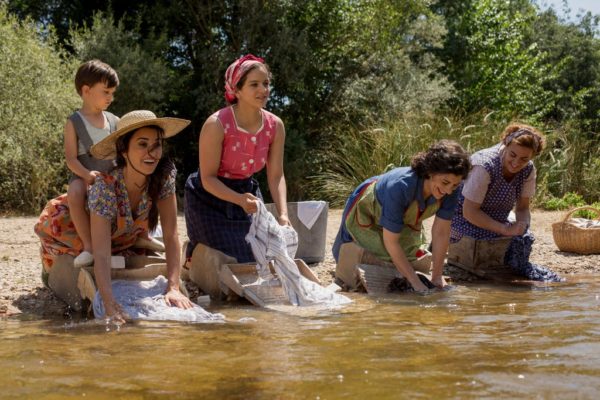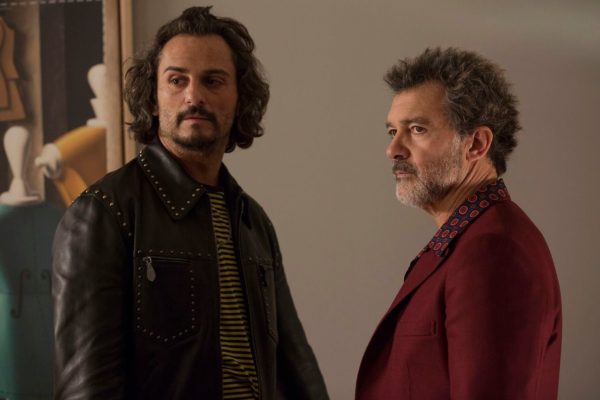In his semi-autobiographical film, Pain and Glory, the 70-year-old Spanish director Pedro Almodovar conducts a critical examination of himself. In this respect, the title of the movie is appropriate. Salvador (Antonio Bandaras), the aging character who portrays him, has amassed acclaim in his industry, but now he suffers from a rash of debilitating ailments and is artistically blocked.

Scheduled to open in Canadian theatres on October 25, Pain and Glory essentially turns on two themes — the vitality of youth and the power of memory. Sharply-observed flashbacks focus on his loving mother (Penelope Cruz), whose ambitions for her talented son were boundless but not necessarily helpful, and on his natural affinity for the arts.
The first flashback takes place on an idyllic summer day as Salvador, perched on his mother’s back, watches her and several other women wash laundry by hand on the bank of a clear-flowing river in rural Spain. It’s hard work, but the ladies enjoy their chore, and the atmosphere is almost festive.

Almodovar, in the next flashback, places the young Salvador at a solemn audition for the school choir. Asked to duplicate a tune a priest hums for them, a succession of students fail the test. Salvador, quiet and poised, passes with flying colors.
Decades later, the aged Salvador is beset by what he soberly describes as the “pains of the soul.” He unburdens himself before Zulema (Cecilia Roth), a friend who’s a good listener. Their conversation leads him to reconnect with Alberto (Asier Etxeandia), an actor who appeared in one of his films 32 years ago. Although they had an artistic falling-out, Salvador is ready to reconcile with his former collaborator.
During their meeting, Alberto introduces Salvador to heroin. Afflicted by a back ache, asthma and choking, and still in mourning over his mother’s death four years ago, Salvador decides to try the demon drug, hoping it will diminish his pain and ease his way back into films.
Having made peace, Salvador and Alberto agree to work together. They start their new partnership at a Cinematheque by answering questions at a special screening of Salvador’s old film.
At this juncture, Salvador retreats into the past yet again, recalling the spare, white-washed cave he and his parents lived in for a while.

Banderas plays Salvador with understated intensity, portraying him as sensitive artist who needs to return to his craft to achieve a sense of mental equilibrium. Absent film, he muses, life is meaningless.
Almodovar, in yet more flashbacks, recalls his role as a mathematics and reading tutor for a local handyman, and remembers a difficult conversation with his mother.
Salvador’s decision to collaborate with Alberto on a play leads to an unexpected encounter with Federico (Leonardo Sbaraglia), his gay lover in the 1980s. Both men have since moved on with their lives, Federico having moved to Buenos Aires, gotten married and fathered children. Yet the tender and nostalgic memories they share, if only fleetingly, remain clear and undimmed.
Pain and Glory deftly resurrects revealing chapters and incidents from Almodovar’s life’s journey, and they are likely to resonate with his legion of admirers.